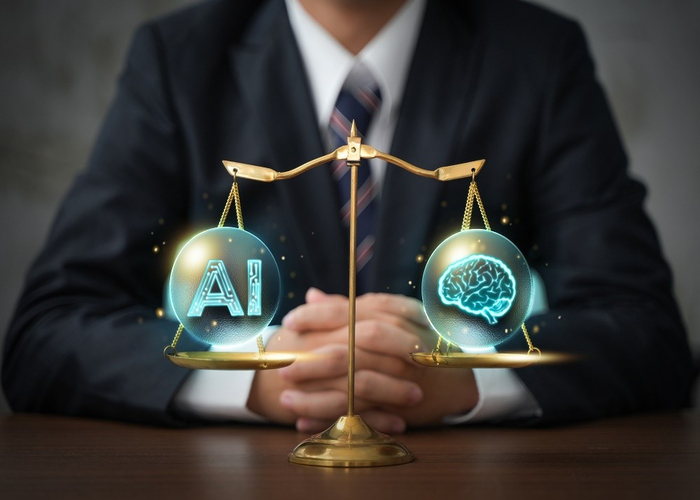Can AI Replace Lawyers? Facts and Fear

AI is transforming various aspects of our lives and different professions significantly. However, the question whether can AI replace lawyers is nuanced and layered. AI is its all might cannot replace lawyers, but it is dramatically altering the legal landscape.
Lawyers are legal experts who play an important role in maintaining justice, settling conflicts, and ensuring that individuals, businesses, and governments follow the law. Their profession is more than just arguing in court; it also includes advising clients, producing legal papers, representing parties in disputes, and interpreting laws and analysing legal precedents. Law is an ever expanding profession.
What AI Can Do in Law
While AI can and has definitely revolutionized certain elements of legal work, particularly those that are repetitive, data-driven, or rule-based. It can easily handle legal research, contract analysis, document creation, and even basic client inquiries via chatbots.
However, AI is still limited in giving complex legal advice, courtroom advocacy, negotiation, ethical decision-making, and developing client relationships, all of which involve human judgment, empathy, and contextual awareness.
While AI is a strong tool that improves speed and accuracy, it cannot replace the fundamental human parts of legal practice. At Presidency School of Law, students are trained in legal tech tools and taught how to integrate AI into their workflow, giving them a competitive edge in the evolving legal ecosystem.
Where AI Falls Short
Artificial intelligence cannot mimic human judgment, emotional intelligence, or ethical reasoning. It cannot argue in court, negotiate settlements, or comprehend a client's underlying needs and principles. Law is more than simply reasoning and tradition; it also involves advocacy, empathy, and navigating grey areas. These are human-specific talents that are required for legal practice.
Law Is a Human-Centric Profession
For example, AI cannot replicate late Nani Palkhiwala's (eminent Indian lawyer) passion towards evolving constitutional law or late Justice P. N. Bhagwati's compassion that revolutionized ‘locus standi’ in India and created space for public interest litigation to help the suffering.
Legal education at Presidency School of Law emphasizes these transformative human values, cultivating professionals who are both technologically adept and socially conscious.
Augmentation, Not Replacement
Today's legal practitioners and students must learn to adapt. Understanding how to work with, not against, AI is becoming increasingly important. The way forward is to embrace legal technology while also developing human-centric abilities like as communication, judgment, and creativity. So at Presidency School of Law, the next generation of legal professionals is being shaped not just to survive in the AI era—but to thrive.
Written by,
Ms. Pushpita Dutta,
Assistant Professor, PSOL













 Rajanukunte, Yelahanka, Bengaluru, Karnataka, Pin: 560119, India
Rajanukunte, Yelahanka, Bengaluru, Karnataka, Pin: 560119, India
 +91 9022092222
+91 9022092222